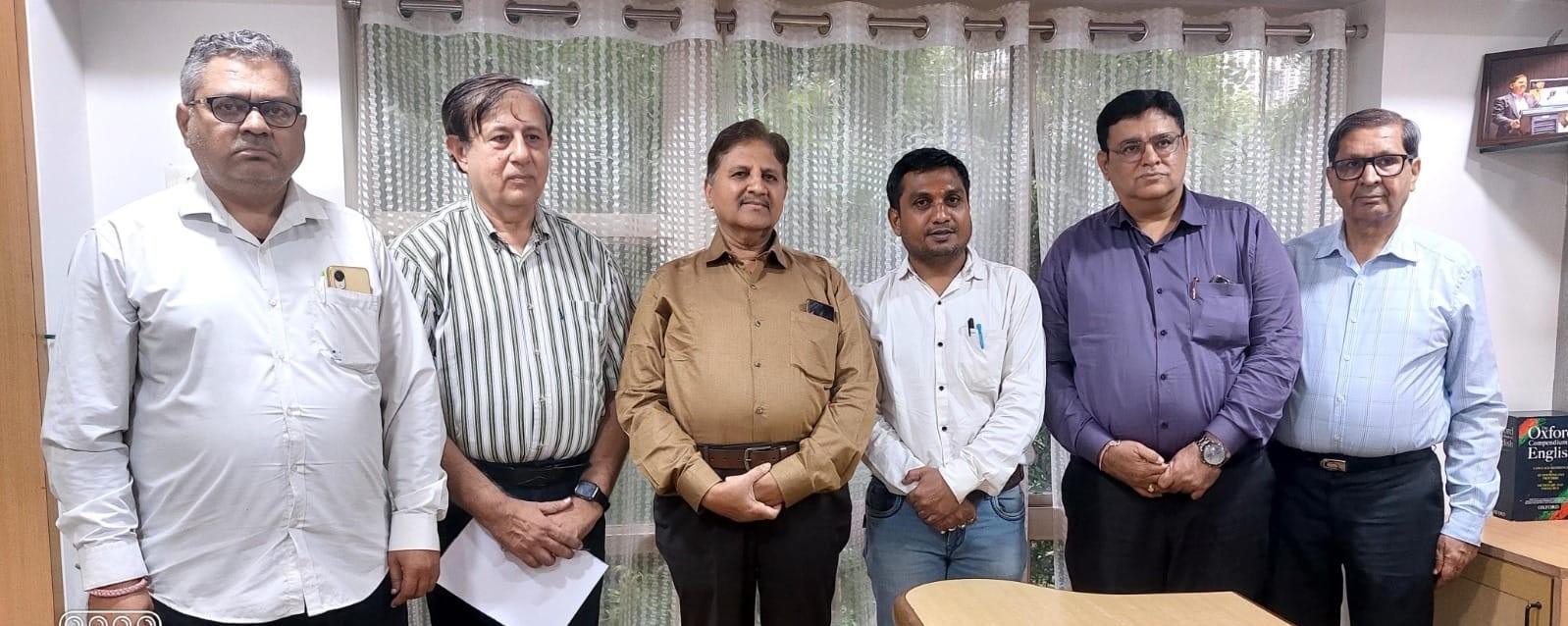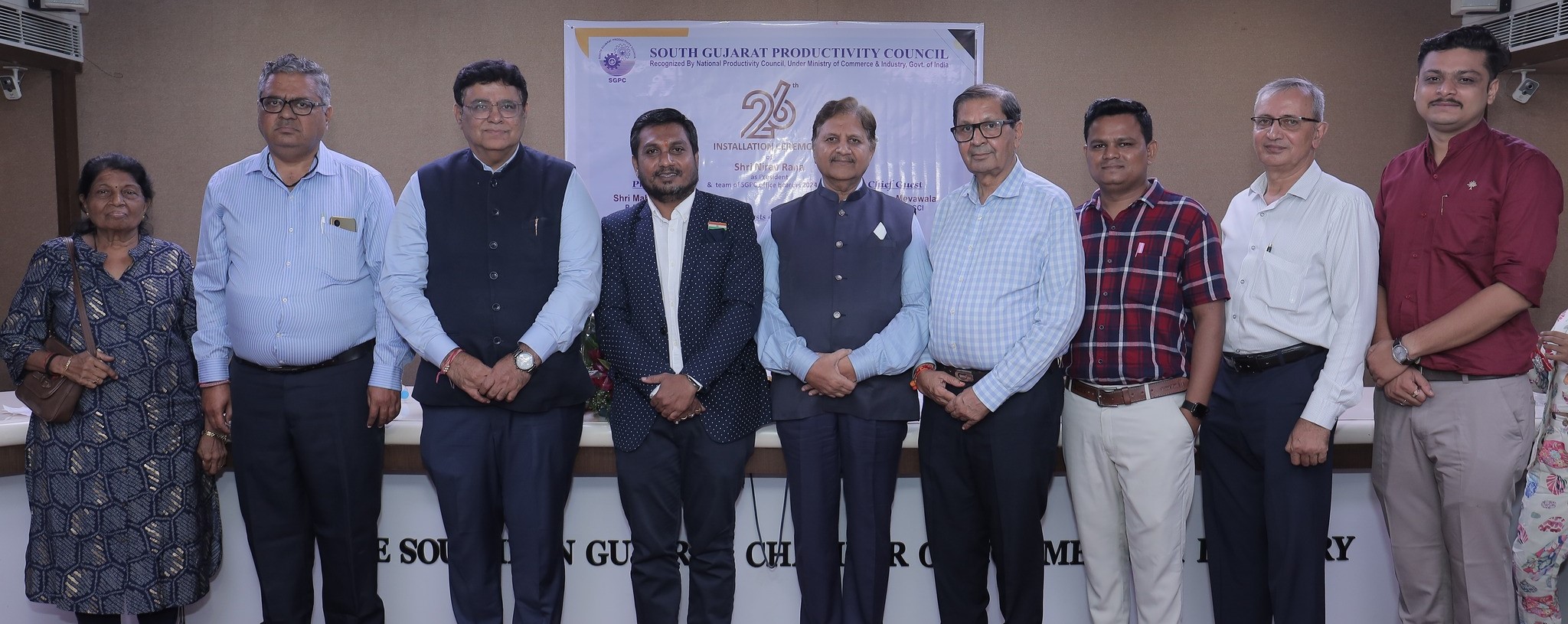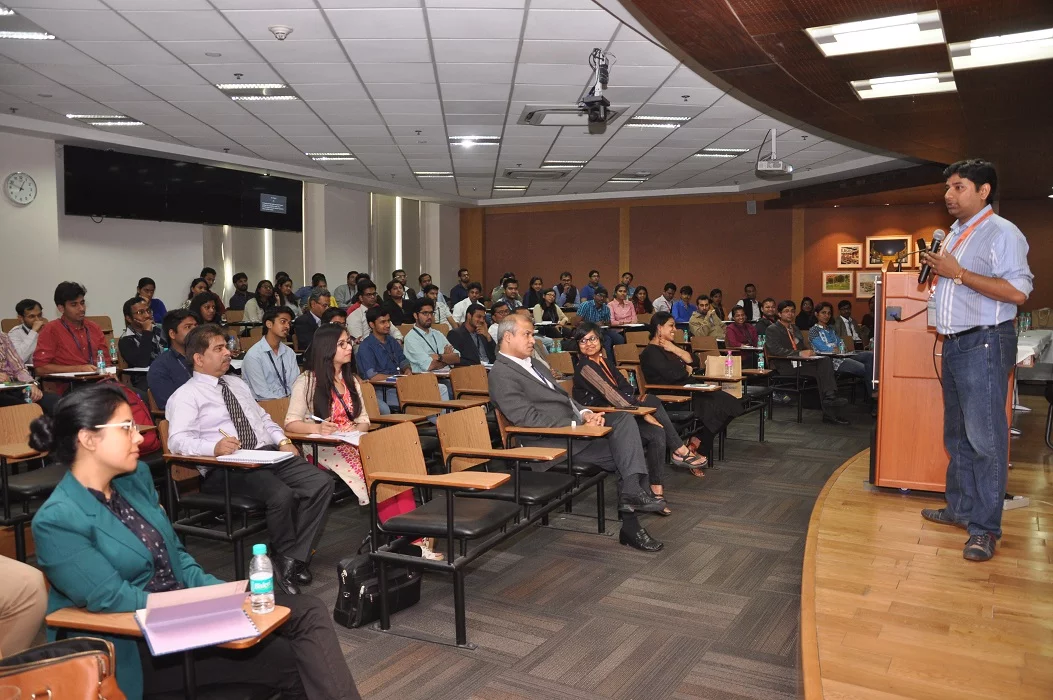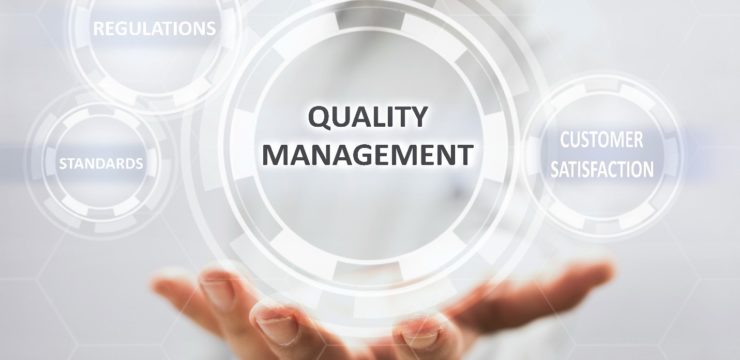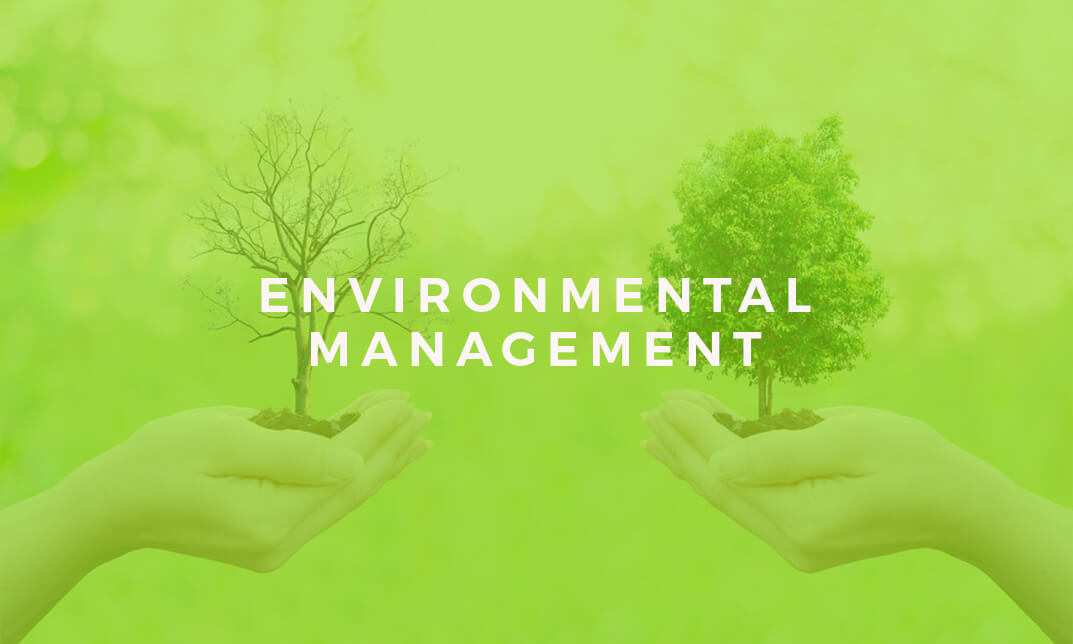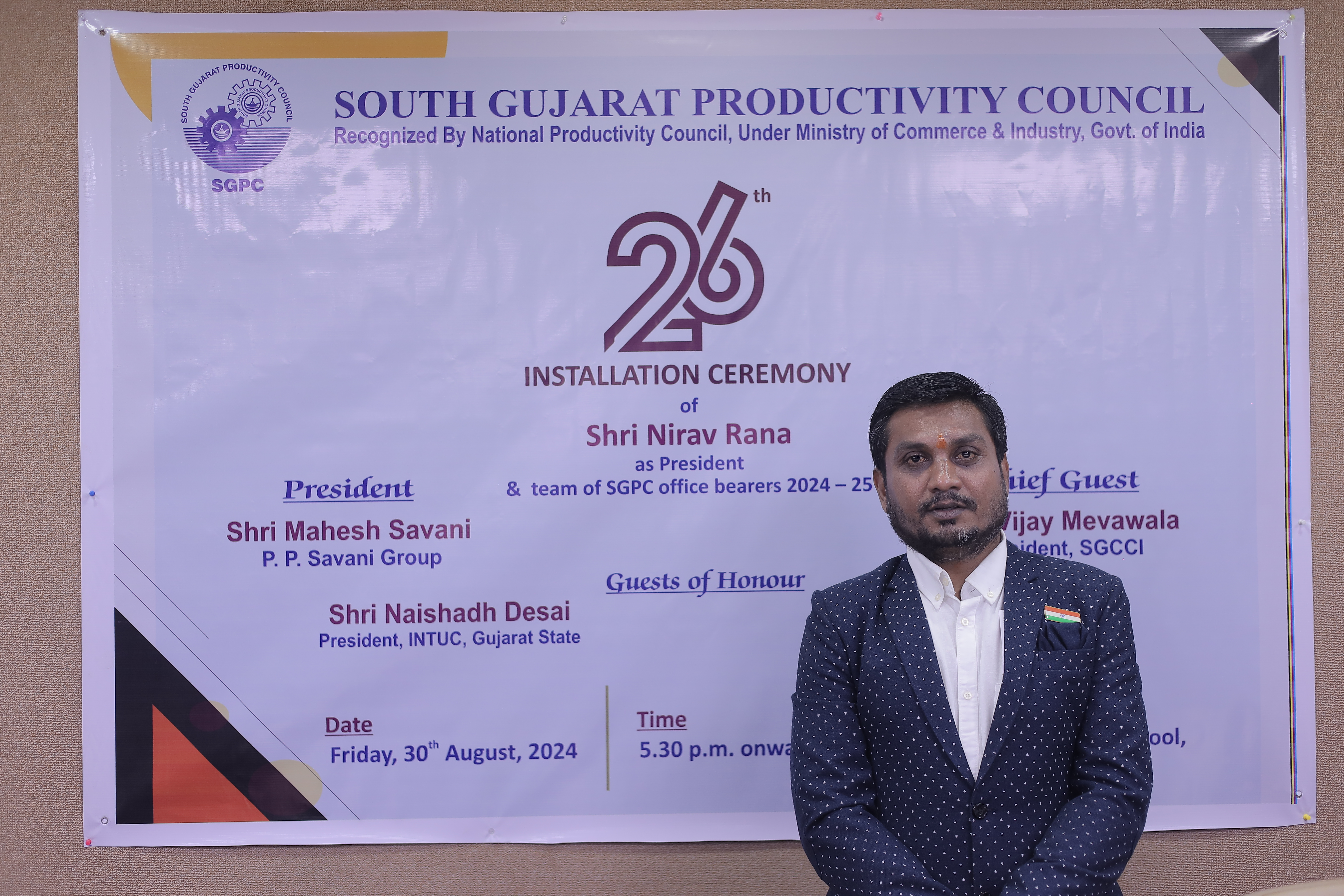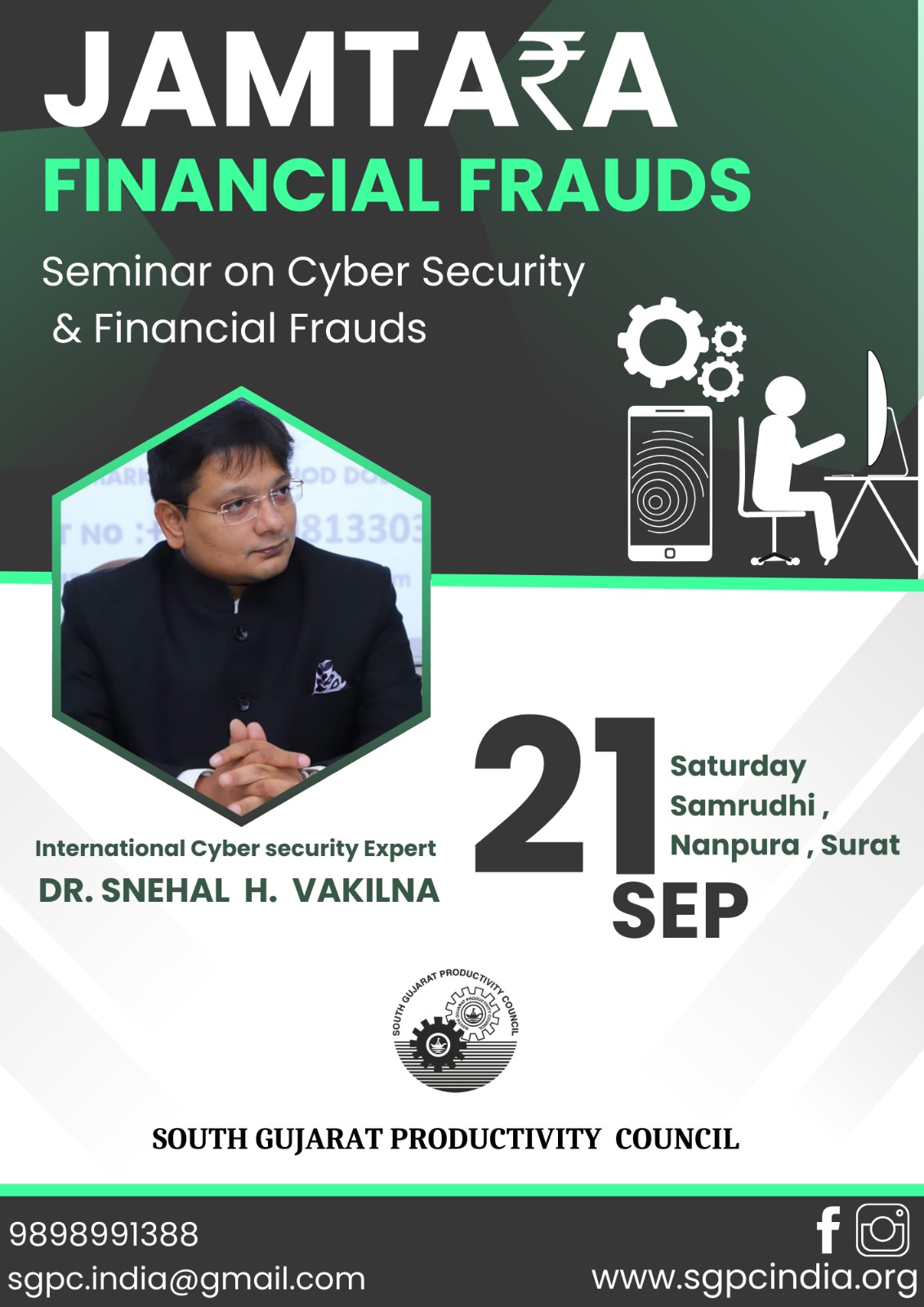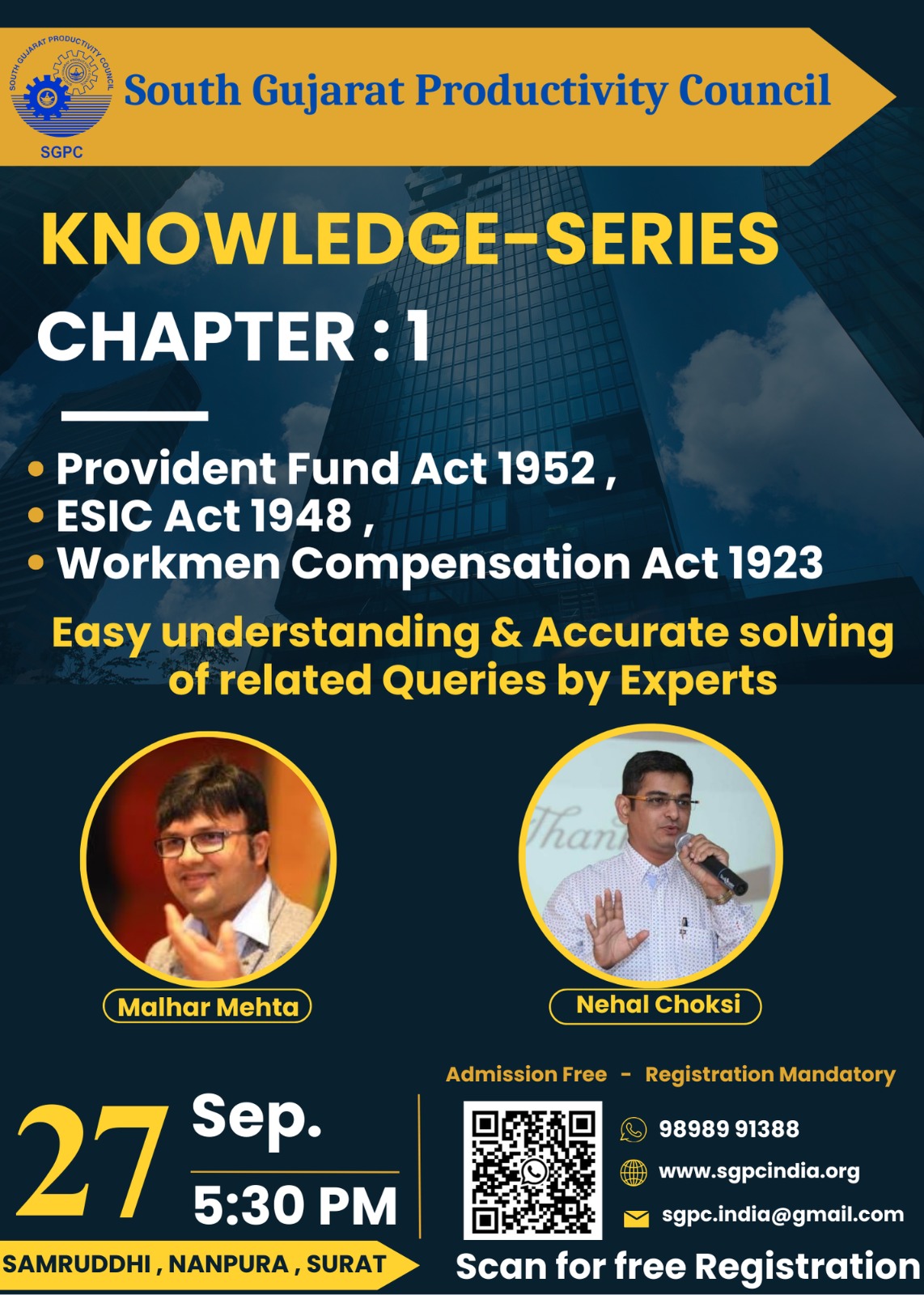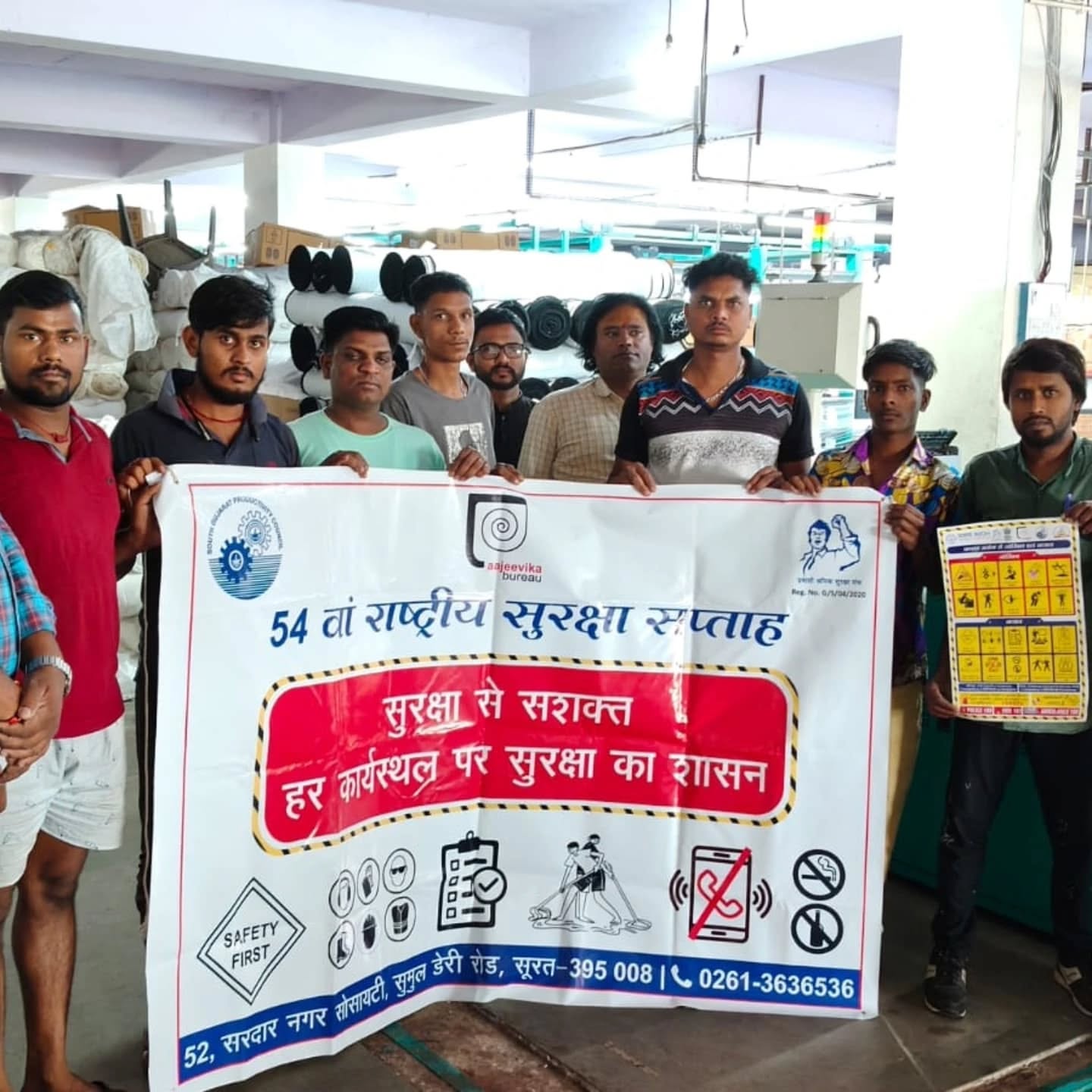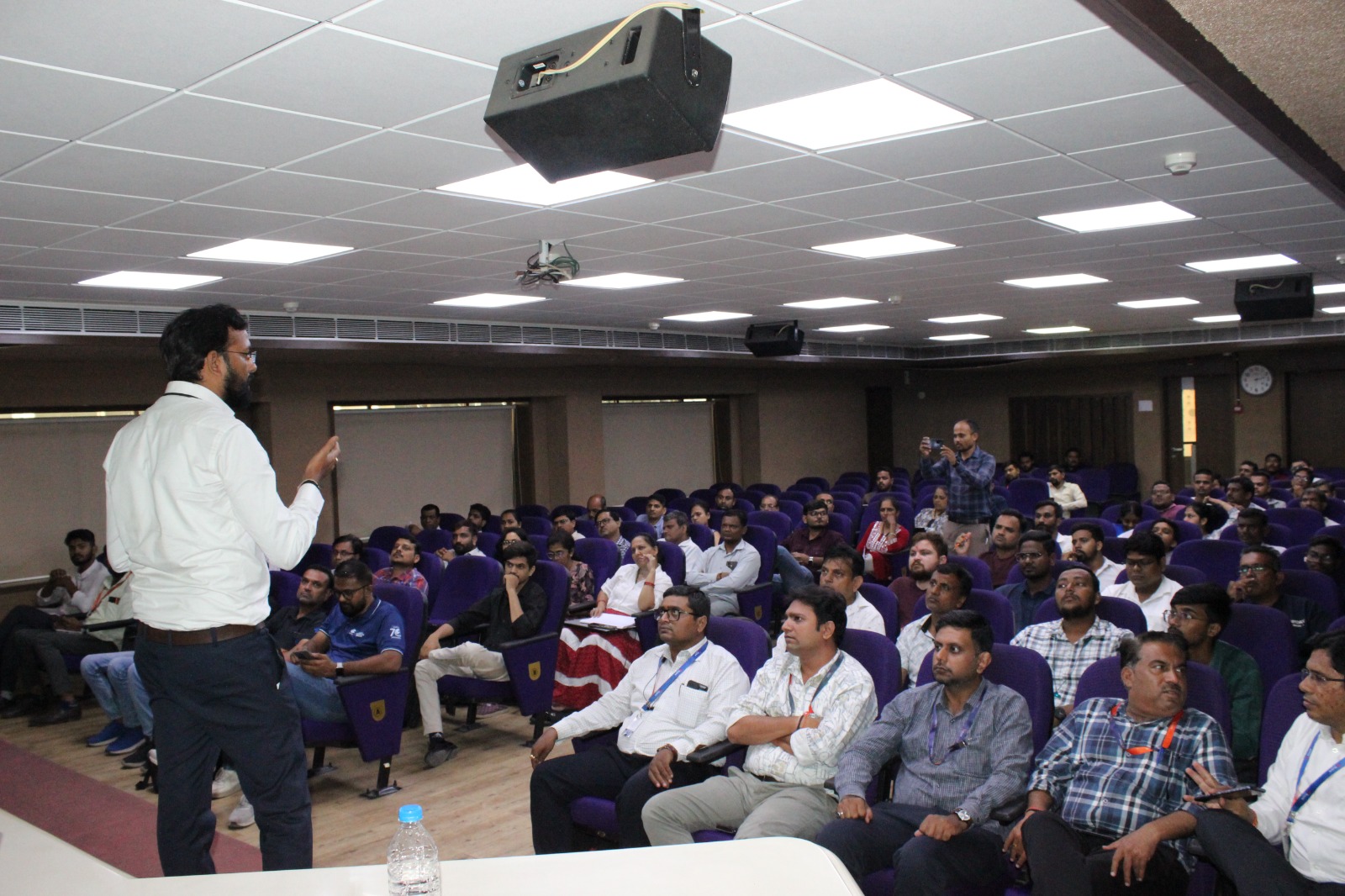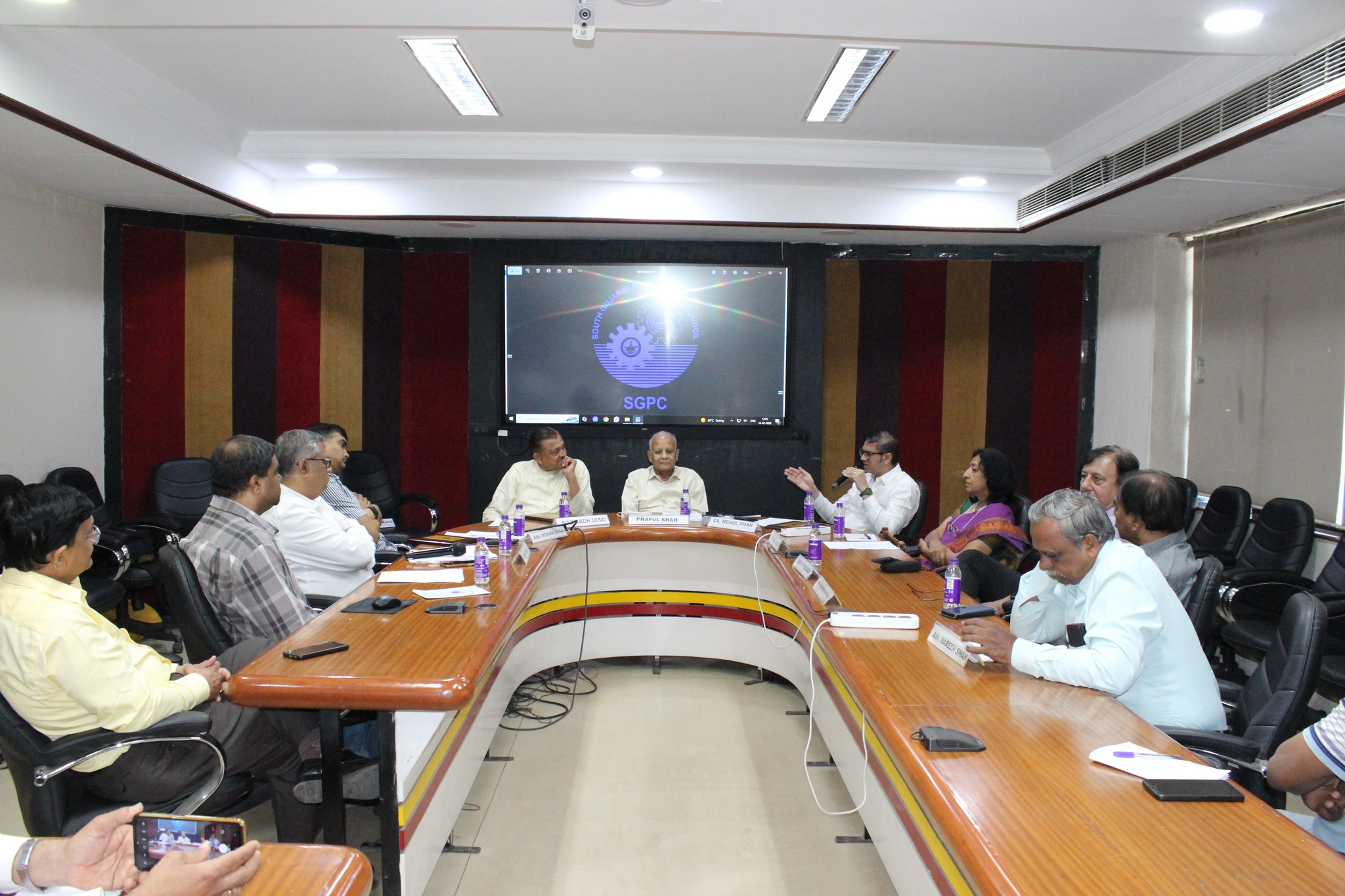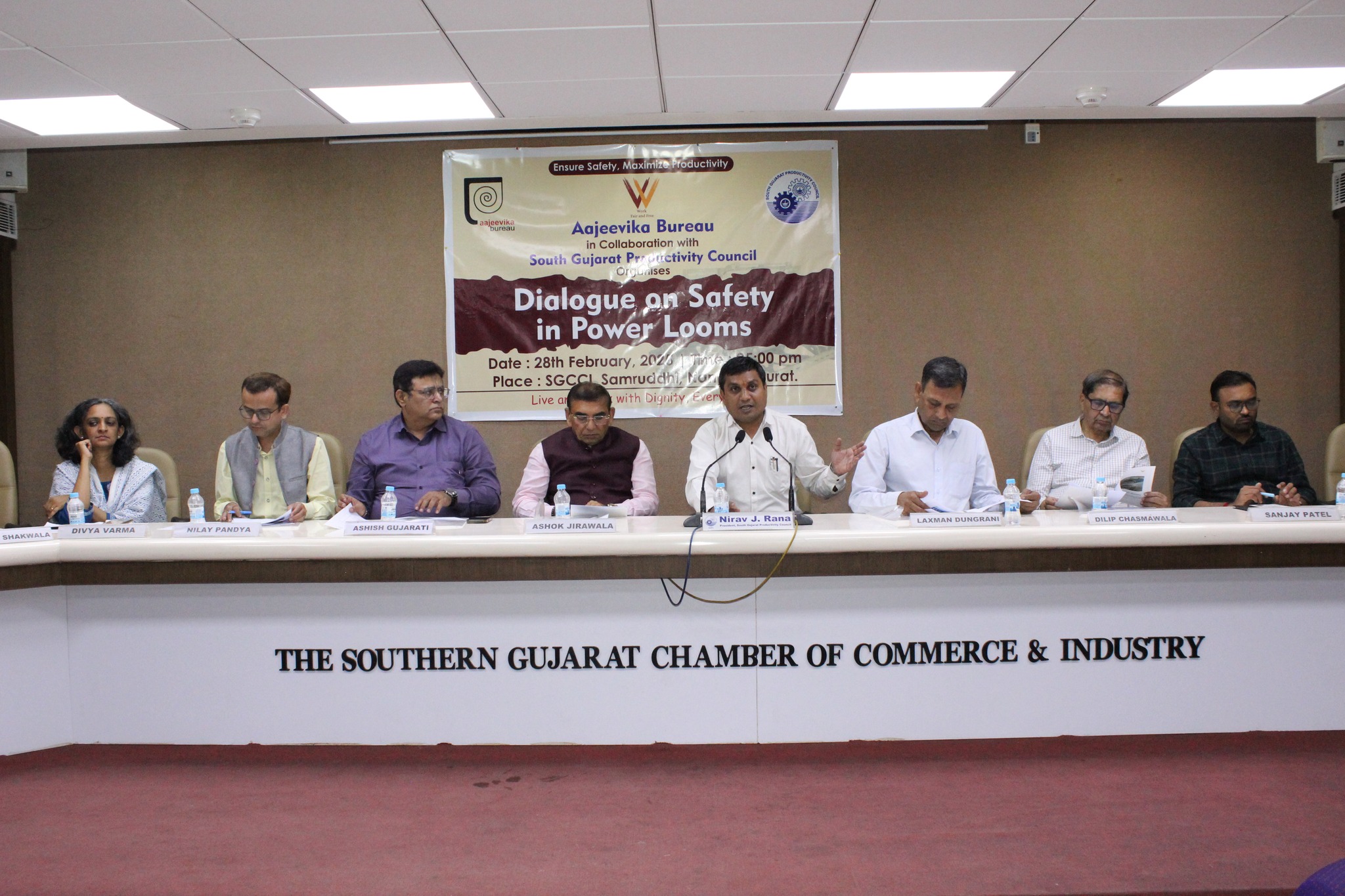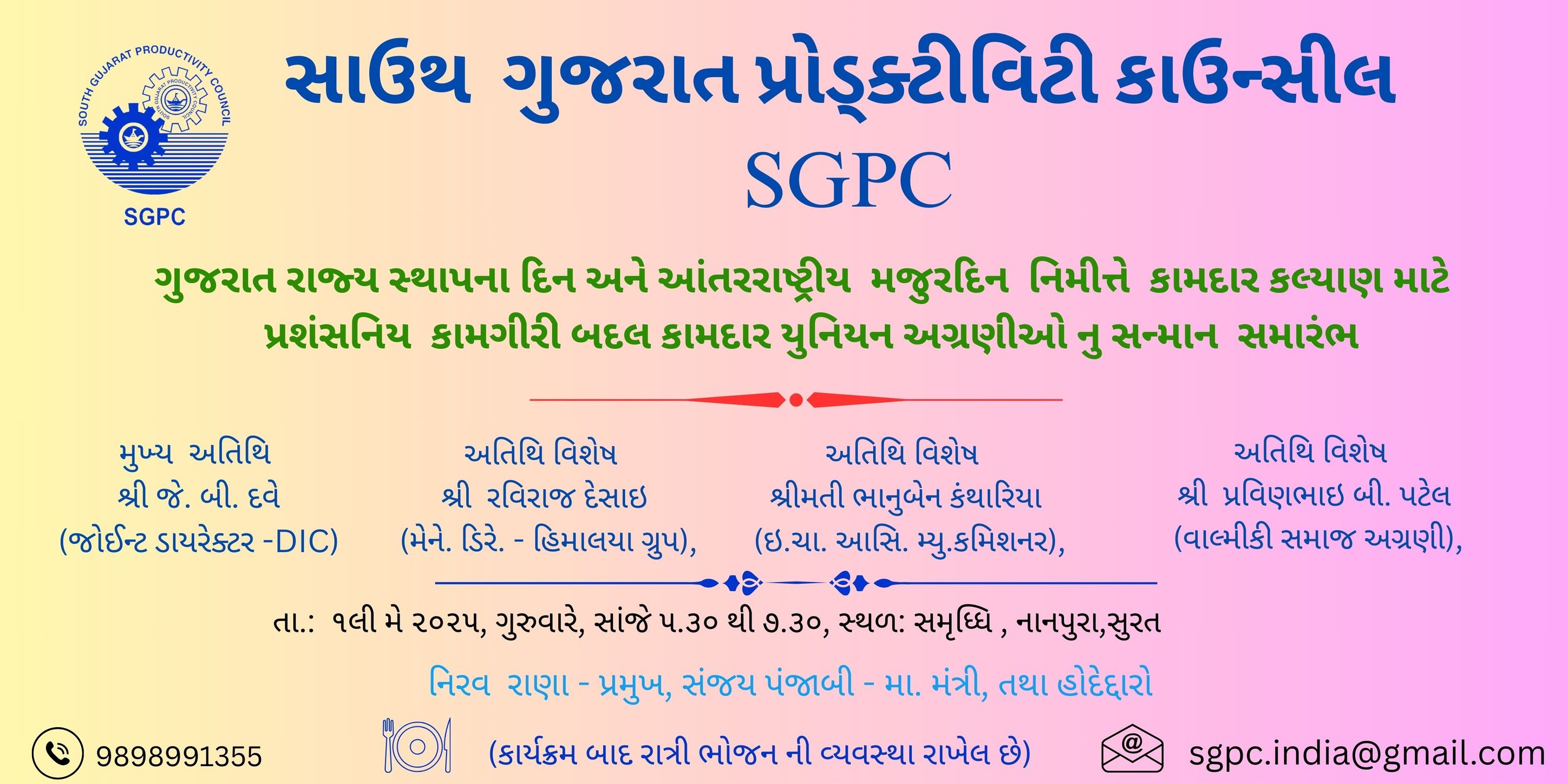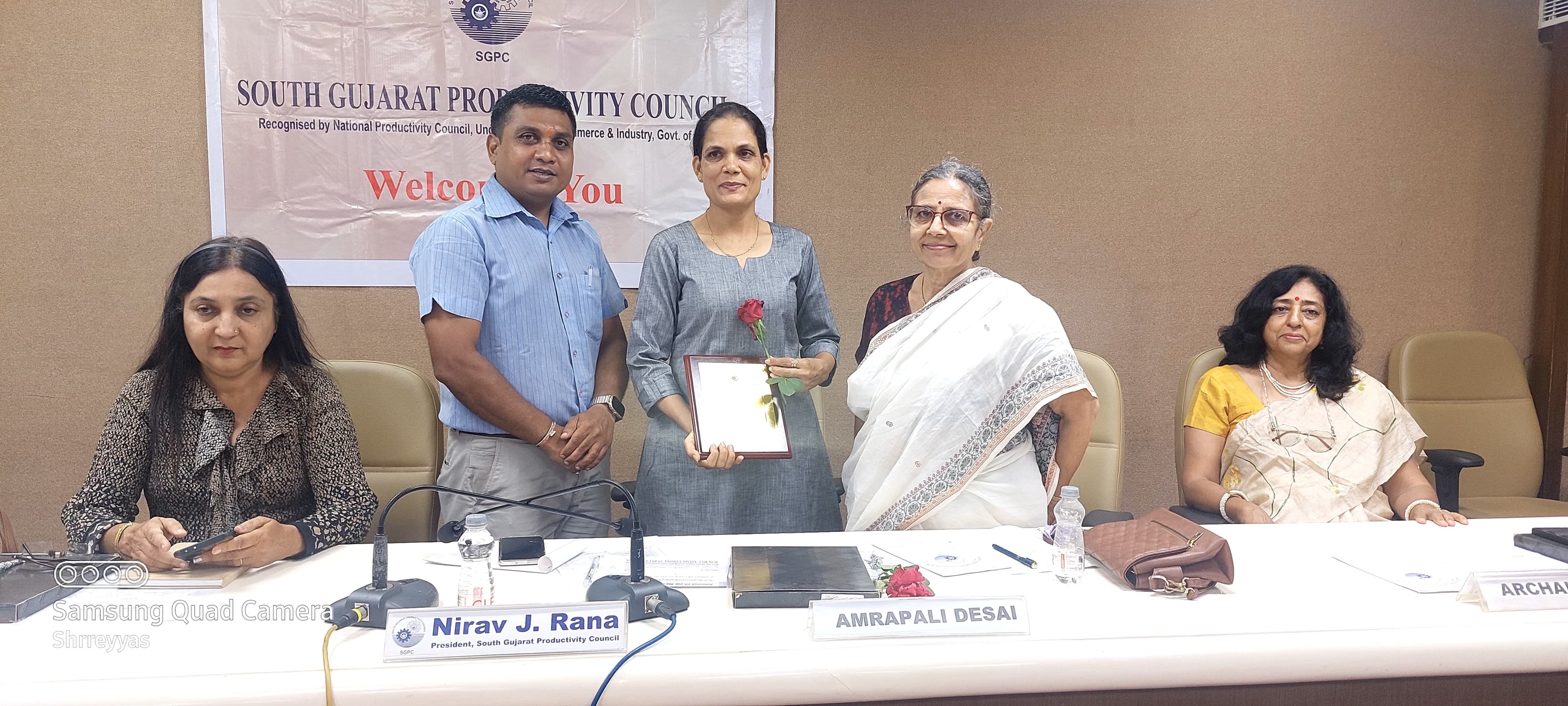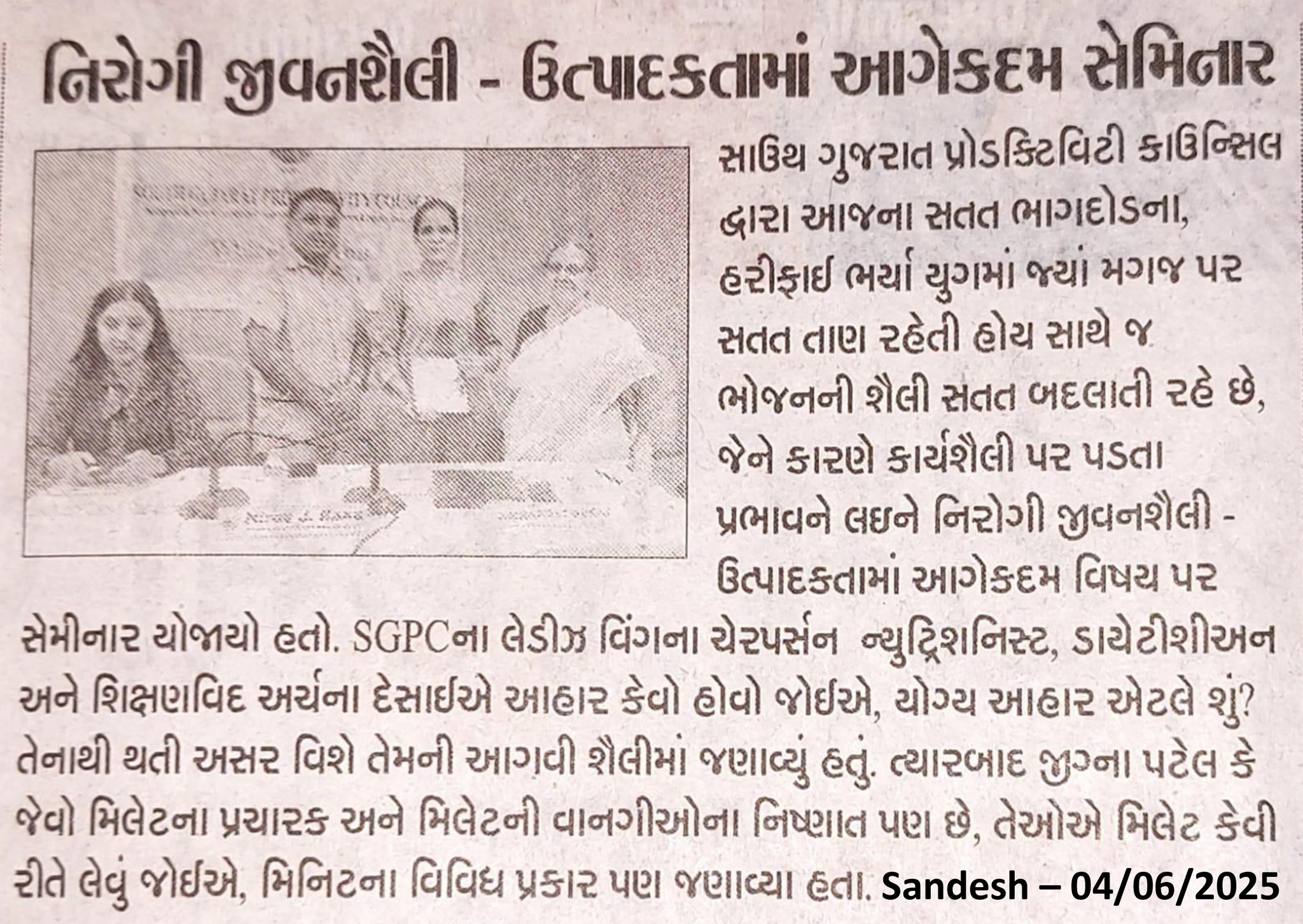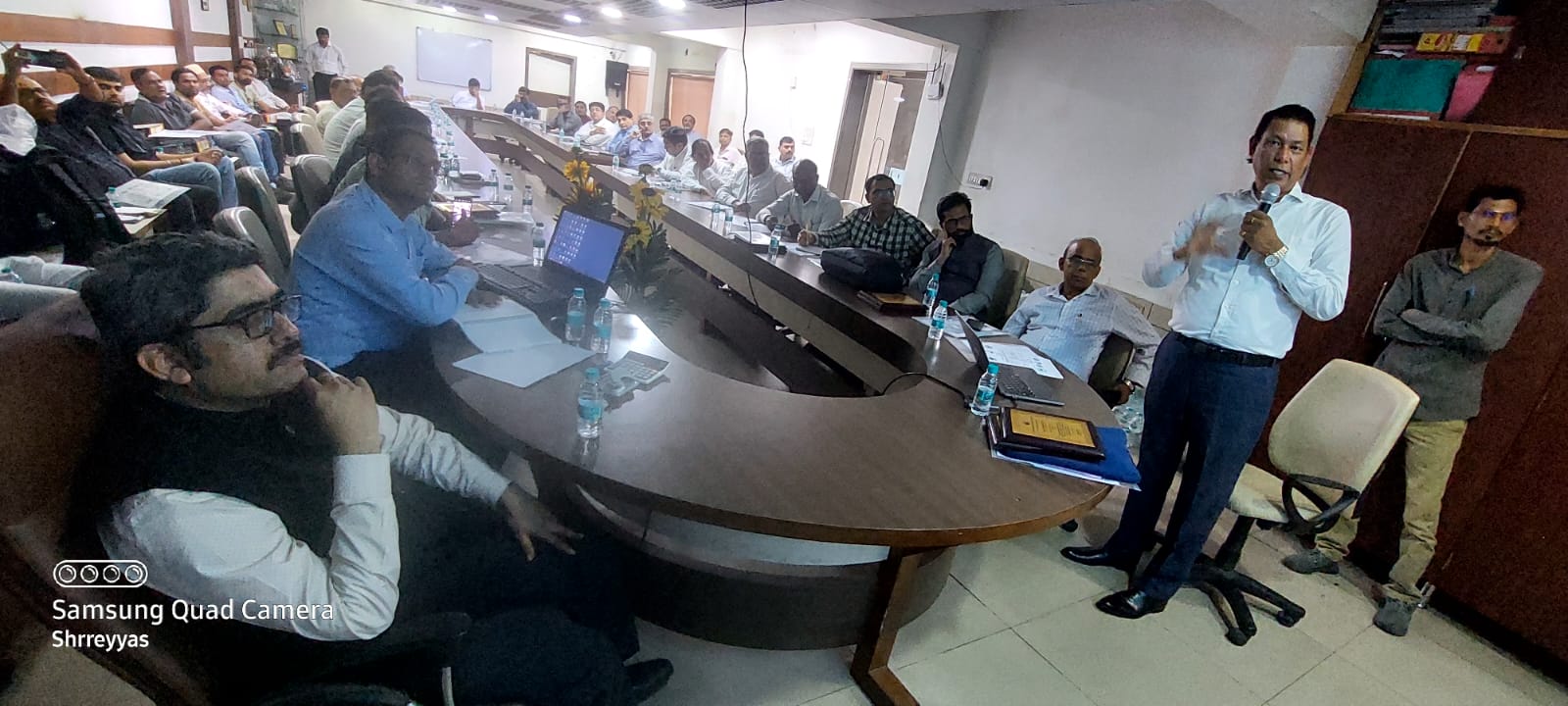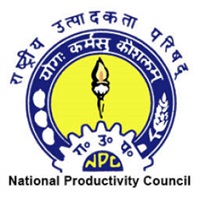South Gujarat Productivity Council organized a seminar at Conference Hall of Sachin Infra Environment Limited on Energy Efficiency and Conservation for Boilers in association with National Productivity Council.
Unido - Mr. Debajit Das, Project Coordinator of United Nation Industrial Development Organization at India and Experts on Environment and Energy Efficiency from National Productivity New Delhi. K. Asthana, Asi. Dye. Anand Verma, Day. Dye. Prashant Shrivastava, Professor of NIMS Jignesh Dave, and NPC - Gandhinagar's Diy. Rahul Kirkir came to give an insight on how fuel savings and efficiency can be increased in using boilers. What assistance is provided by government of India to increase the energy capacity of boilers and its efficiency, what can be help from banks and how can the energy use for good and maximum input is given Special spraying was done on the output could be obtained. Assistance and related loan information were given from the Indian Government to modify the boilers or to take new boilers for the upgrade of boilers. The National Productivity Council will play a main part in taking loan. Six clusters of different sectors have been fixed in India, including Surat and Ankleshwar are two main clusters, and work is going on today and those who have adopted these changes are getting very good results. Then the question answer was round and received very beautiful response. At the beginning of the program, on behalf of South Gujarat Productivity Council, President of the organization Nirav Rana, Treasurer Dipesh Shakwala, Former President Arvind Kapadiya and Mayank Dalal welcomed the dignitaries one after another. South Gujarat Productivity Council thanks National Productivity Council officers and other guests for giving beautiful information. Special thanks to Mr. Rahul Kirkir, Director of National Productivity Council at Gandhinagar and also thank everyone from Delhi and Hyderabad. Sachin Infra Enviroment Limited. We thank President Binay Agarwal, Mitul Mehta, Kishore Patel and office bearers for their cooperation.
A seminar on Energy Efficiency and Conservation for Boilers was organized by South Gujarat Productivity Council in collaboration with National Productivity Council at the Conference Hall of Sachin Infra Environment Limited.
Shri Debajit Das, Project Coordinator, India, UNIDO - United Nation Industrial Development Organization and Shri A.K. Asthana, Asst. Dy. Anand Verma, De. Dy. Prashant Srivastava, Environment and Energy Efficiency Experts from National Productivity New Delhi, Professor Jignesh Dave, NIMS, and Dy. Rahul Kirkire, NPC - Gandhinagar, came to explain how fuel saving and efficiency can be increased in the use of boilers. In collaboration with the United Nations, special attention was paid to the assistance provided by the Government of India to increase the energy capacity and efficiency of boilers, what assistance can be provided by banks and through this, energy can be used in the best way and how to get the best output from the additional input given. Information was given on the assistance provided by the Government of India for upgrading boilers to make changes in them or to buy new boilers and related loans. The National Productivity Council will play a major role in getting loans. Six clusters of different sectors have been identified in India, of which Surat and Ankleshwar are the two main clusters, and work is underway on them today and it has also been found that those who have adopted these changes are getting very good results. After this, a question and answer round was held and a very good response was received. At the beginning of the program, on behalf of the South Gujarat Productivity Council, President Nirav Rana,Ttreasurer Dipesh Shakwala, former Presidents Arvind Kapadia and Mayank Dalal welcomed the dignitaries one after the other by giving them Mementos. South Gujarat Productivity Council thanks the officers of the National Productivity Council and other guests for providing knowledgable information. Special thanks to Mr. Rahul Kirkir, Director of the National Productivity Council - Gandhinagar. We also thank everyone who came from Delhi and Hyderabad. We express our gratitude to Binay Agarwal, Mitul Mehta, Kishore Patel, President of Sachin Infra Environment Ltd. and the office bearers for their cooperation.

